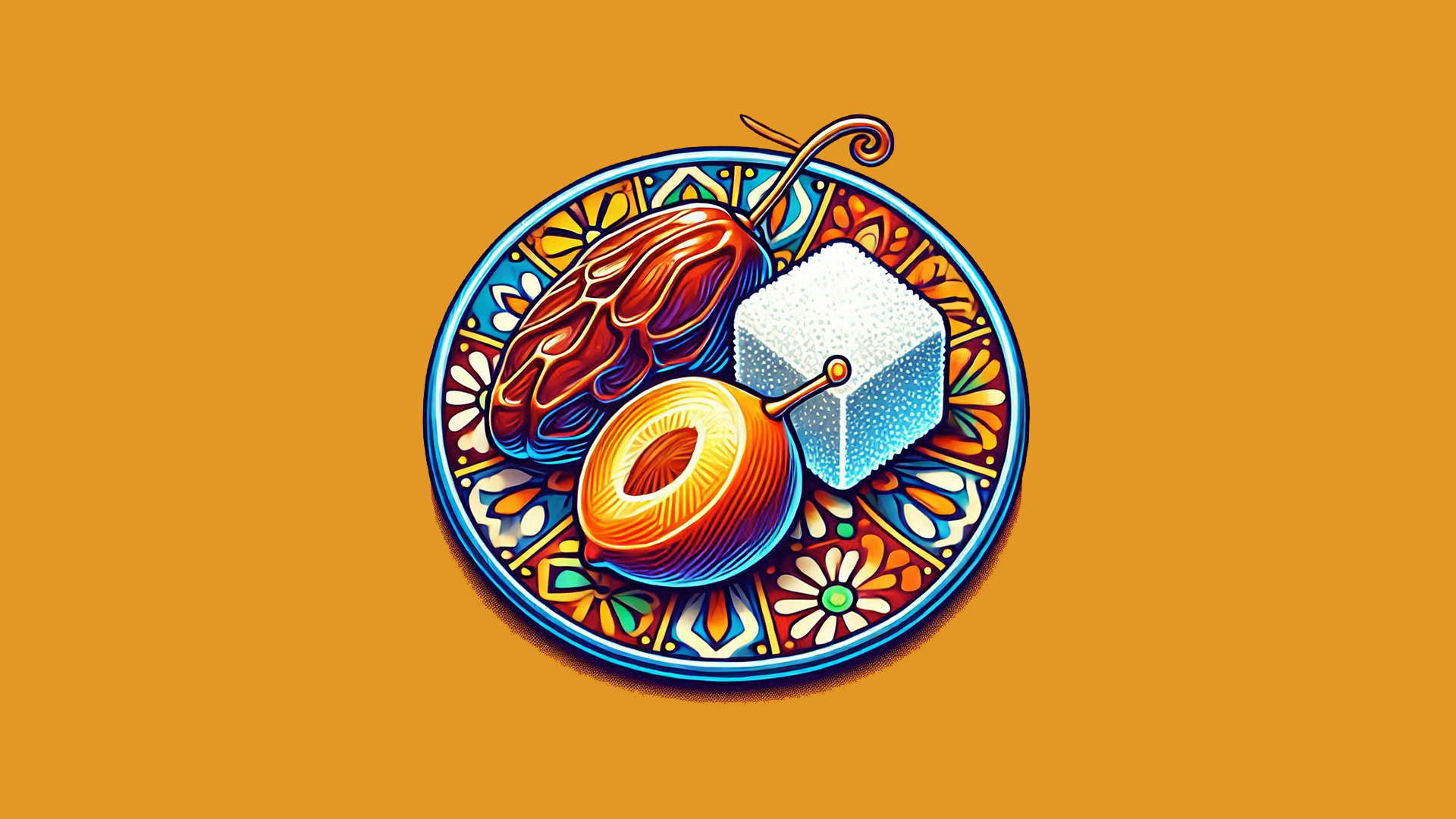In today’s fast-paced world, we are surrounded by sugar-laden snacks, drinks, and processed foods.
If you want to improve your health, lose weight, or fight those constant sugar cravings, it's time to consider swapping refined sugar for something more nutritious: dates.
Dates are a naturally sweet and nutrient-dense alternative to refined sugar. They not only satisfy your sweet tooth but also offer numerous health benefits.
In this post, we'll explore why dates are so good for you and how they can be used in bakes, desserts and even your everyday meals — all with lots of recipe ideas to try!
Dates as a Sugar Substitute
Dates, the sweet and chewy fruits of the date palm tree, have been used for centuries in Middle Eastern and North African cuisines.
Their natural sweetness, rich caramel-like flavour, and versatility make them an excellent substitute for refined sugar.
Dates come in different varieties, with the Medjool (soft and large), Deglet Noor (semi-dry), and Barhi (small and tender) being the most common.
Do Dates Have Sugar?
Yes, dates contain sugar—specifically, natural sugars like fructose, also known as fruit sugar.
However, the naturally occurring sugars in dates are locked in the fruit's structure with fibres, which ensures the body processes sugars more slowly, preventing rapid blood sugar spikes.
Thus, dates provide sustained energy rather than a quick spike and crash.
In addition, the sugars in dates are accompanied by vitamins, minerals, and antioxidants, making them nutritionally superior to refined sugar.
How Much Sugar Do Dates Have?
Dates are naturally sweet, with about 16 grams of sugar in a single Medjool date (24 grams in weight).
While this seems high, it’s important to note that the sugar in dates is balanced by fibre, which slows digestion and prevents abrupt sugar spikes.
Why Dates Are Better than Sugar
Dates are a wholesome, nutrient-packed food that offers a far healthier alternative when compared to refined white sugar.
Here are 4 reasons why you should choose dates over sugar:
Nutritional Value
White sugar is essentially just a source of empty calories; it offers no nutrition besides simple carbs.
Instead, dates are packed with nutrients like minerals, such as potassium, magnesium, copper, and manganese; vitamins like vitamin B6 and K; and precious health-giving antioxidants.
Fibre Content
A single Medjool date contains a whopping 1.6 grams of fibre, contributing to the recommended daily intake of 25 to 30 grams.
Dietary fibre is a type of carbohydrate that the body cannot digest, and it plays a crucial role in regulating blood sugar levels and promoting satiety.
When you eat dates, their fibre helps slow down the absorption of sugar, preventing the quick spikes that often follow the consumption of sugary foods. You'll feel fuller for longer!
Low Glycemic Index
The glycemic index (GI) measures how quickly a food raises blood sugar levels after consumption.
Dates have a glycemic index between 35 and 55, depending on the variety, placing them in the low to medium GI category.
Their glycemic load (GL), which accounts for the portion eaten, is also relatively low, especially if you stick to a couple of dates a day.
This means dates have a minimal impact on blood sugar levels compared to refined sugar.
Low Processing
Dates are a whole food, minimally processed, unlike sugar, which undergoes extensive refining, which strips away precious nutrients.
How Many Dates Can You Have a Day?
Though dates are a wholesome and natural food, they are dried fruits, and as such, they contain more sugar than fresh fruit.
So, moderation is key when consuming dates, just as with any sweet food.
The recommended portion size for dried fruit is 30 grams (1 oz) a day.
This translates into 3-4 Deglet Noor dates (8 grams each) or 1 large Medjool date (24 grams each).
This provides a balanced intake of sweetness, fibre, and nutrients without overloading on sugar or calories.
Dates For Your Everyday: A Natural Sweet Tooth Fix
A couple of dates a day can easily satisfy your sweet tooth without the adverse effects of refined sugar.
You can use dates whole, chopped, or blended into a paste or powder. You can also find dates as date syrup and date sugar.
Here are my best tips on incorporating dates into a healthy diet!
Healthiest Ways to Eat Dates
Pairing whole dates with protein or healthy fats is an excellent way to balance their sweetness and prevent overeating. These nutrients also help to control blood sugars even more.
For a healthy, nutritious snack, you can try:
Dates with roasted nuts or seeds
Dates with yoghurt or cheese
Dates with nut butter
Using Dates in Bakes and Desserts
Dates can be chopped or blended into a paste and used as a sweetener to replace sugar in desserts and bakes, from cookies and cakes to puddings and ice cream.
Here are my go-to healthy desserts with dates:
Date Chocolate Mousse with Tofu, silky, 3-ingredient
Hemp Protein Brownies, fudgy and moist
Date Almond Pulp Cookies, healthy and zero-waste
Vegan Salted Caramel Ice Cream, no machine needed
Sticky Toffee Pudding, gluten-free recipe
More Tips and Ideas to Eat Dates
Whether you're looking for a snack or a sweet addition to your meals, here are more healthy ideas to eat dates:
Add chopped dates to low-sugar breakfast cereals, porridge, overnight oats, and chia pudding, like this Date Blueberry Chia Pudding
Make date granola, like this Sugar-Free Apricot Granola
Blend into smoothies
Use for sauces and dressings, like this Indian Plum Chutney
Add to salads like couscous
Make date energy balls and bars, like these Carrot Cake Energy Bites, Sugar-Free Dates Flapjacks, or Acai Berry Balls.
Takeaway
Next time you reach for that sugary snack, consider reaching for a date instead—and discover how sweet and nutritious real food can be!
Unlike refined sugar, which can lead to feelings of hunger shortly after consumption, the fibre in dates helps curb your cravings and keeps you satisfied.


